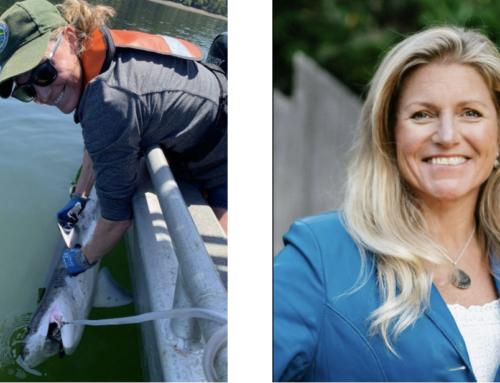Spotlight On Sustainable Investing, Natural Capital
May 4, 2025

Despite increasing challenges, ESG-focused funds and sustainable practices continue to remain in vogue for investors. Gautier Quéru, managing director of natural capital at Mirova, who has just launched three new impact nature-based carbon investments, shares his insights on sustainable investing with this news service.
Paris-based Mirova, an
affiliate of Natixis
Investment Managers focused on sustainable investing, has
just released three new impact nature-based carbon investments,
located in Argentina, Costa Rica and Madagascar, after raising
over $350 million on this topic since 2020.
Mirova has a range of ESG-focused funds covered by Article 9
under the EU’s Sustainable Finance Disclosure Regulation (SFDR),
including ecosystem conservation, biodiversity and
sustainable agriculture, with investments ranging from precision
agriculture, regenerative agriculture and technologies to reduce
emissions from the sector.
The latest funding shows Mirova’s capacity to mobilise private
capital to support high-integrity projects that contribute to
climate change mitigation and adaptation, ecosystem conservation
and restoration, improved livelihoods and wellbeing, as well as
gender equality and inclusion, the firm said in a statement.
“We are witnessing an acceleration in the mobilisation of private
and corporate investors who are increasingly recognising the
critical importance of decarbonising their own activities but
also to contribute to efforts beyond their value chains,” Gautier
Quéru, managing director of natural capital at Mirova, said. “We
are proud to present three new investees that promise to deliver
strong positive impacts on both environmental and social fronts,
while also offering attractive return potentials.”
Quéru believes that there is strong demand for nature-positive
investments, with production often found in emerging markets,
such as coffee.
The firm thinks that investors are rallying around nature
conservation and regeneration because they understand how much of
the economy and development are tied to managing and regenerating
natural resources.
Mirova has developed an investment expertise allied
to “nature-based carbon assets” to enable institutional and
corporate investors to contribute to global objectives of nature
protection (Positive Nature) and carbon neutrality (Net Zero).
The strategy aims to support high-quality projects targeted
at protecting and restoring nature mostly in emerging
markets, as well as supporting farmers in their transition to
regenerative agriculture. Mirova aims to generate carbon
credits and co-benefits for local communities, especially
promoting women’s independence.
Mirova’s approach is based on the understanding that carbon
credits are essential tools for funding emission reduction
projects around the world and contribute to achieving the
goal of dedicating $300 billion per year to combatting climate
change, as announced at COP29 in November 2024. To ensure the
integrity of carbon credits, projects must adhere to strict
criteria, including additionality, measurability, and permanence.
Mirova said it applies rigorous standards to select projects that
not only meet these criteria but also generate significant social
and environmental co-benefits.
Blended finance
Quéru also highlighted how blended finance has become a buzz
word. Last year, Mirova mobilised a blended finance coalition for
its second generation fund dedicated to sustainable land use. It
gathered a coalition of investors and partners to support
investments in regenerative agriculture, agroforestry, and
sustainable forestry in emerging markets.
After establishing and deploying the Land Degradation Neutrality
Fund (LDN) in partnership with the United Nations Convention to
Combat Desertification (UNCCD), Mirova announced the support of
key investors for the Mirova Sustainable Land Fund 2 (MSLF2),
which reached its first closing and commenced operations last
year.
The coalition comprised a mix of public, private, and
philanthropic investors combining their resources through a
blended finance approach: the SDG Impact Finance Initiative
(SIFI), which plays a catalytic role as the first junior
investor, alongside institutional investors Abeille Assurances,
Allianz France, and BNP Paribas Cardif. This coalition also
includes development finance institutions investors FMO and
Proparco, who intend to commit investments for the forthcoming
second close.
Additionally, the Rainforest Alliance will help create a
robust project pipeline and support high-quality initiatives on
the ground as part of the strategic partnership established with
Mirova. Together, they aim to amplify locally led Nature-based
solutions, and especially agroforestry projects that deliver
significant benefits for climate, biodiversity, and local
communities through targeted impact investing initiatives across
Africa, Latin America, and Asia.
Sustainable land management and restoration are essential for
addressing the challenges of climate change, biodiversity, water,
and food security. It is important to attract more capital to
support large-scale projects, particularly in emerging markets,
where blended finance plays a key role in mobilising funds from
institutional investors through risk mitigation mechanisms
established by development finance institutions and philanthropic
actors. This maturing sector, driven by increasing demand for
sustainable food and strengthened regulation of supply chains, is
fostering the emergence of a new asset class.
See more about Mirova
here, an affiliate of Paris and Boston-headquartered Natixis
Investment Managers, which has over $1.3 trillion assets under
management,
Paul McMahon, a co-founder and managing partner of asset manager
SLM Partners{/tag],
also believes that there has been higher investor interest in
regenerative agriculture and forestry recently. He believes
that it has the potential to grow, and sees it as a real
investment opportunity. See more
here.
Search
RECENT PRESS RELEASES
Related Post




